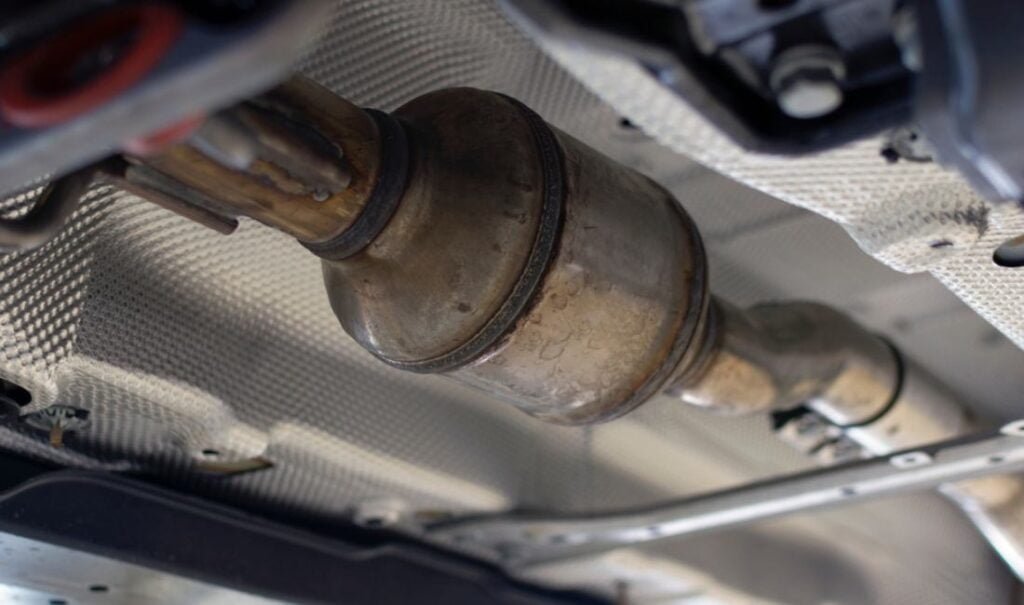Last updated on January 23rd, 2024
Cars are designed to run smoothly from the point of completion of the manufacturing process until they reach their lifespan.
However, it takes a lot of commitment to a regular maintenance culture to achieve this result.
One of the most frustrating experiences for car owners is dealing with issues that hinder the engine’s proper functioning. If your car jerks when accelerating uphill, that’s an issue to be concerned about.
However, you don’t have to panic over issues like the scenario above.
Instead, take a moment to find out some of the reasons behind the challenge and the best possible solutions.
Four Main Reasons Why Car Jerks When Accelerating Uphill
There’s a cause to every effect in any situation. It can be overwhelming to focus on the effect of a challenge and neglect to make an effort to ascertain the cause in order to deal with it.
There are a couple of factors responsible for why a car jerks intermittently.
Finding out the exact reason for your car’s case will help you figure out the best solution to the problem. Some of the reasons why a car jerks when accelerating uphill include the following:
1. Faulty fuel pump or blocked fuel filter


The fuel supply issue is the primary problem with a car jerking during acceleration, especially while accelerating uphill.
Insufficient fuel supply hinders the proper functioning of a vehicle’s internal combustion engine. The main component responsible for this issue is the fuel pump.
A defective fuel pump will automatically alter the correct fuel supply through a vehicle’s fuel system to keep the engine running efficiently.
Unfortunately, this eventually results in a car jerking at intervals until the engine stops.
In some cases, a blocked fuel filter may also hinder the free flow of fuel through the fuel system to the appropriate quarters for proper functioning.
This can also result in a car jerking unexpectedly until you rectify the issue.
2. Dirty or clogged fuel injectors


Dirty fuel injectors can hinder a car’s engine from running efficiently by causing it to lose its power supply.
This can result in the car jerking due to inconsistency in delivering the required power for proper functionality.
On the other hand, the alteration of proper and consistent fuel intake can also make the engine stutter, misfire, or stop at some point.
3. Bad spark plugs


A car’s spark plugs play a vital role in the ignition process that starts the engine. The plugs trigger an electric current that ignites the fuel in each of the cylinders and commences the combustion process that starts the engine.
The spark plugs remain relevant as far as the engine is concerned. Therefore, having faulty spark plugs in a car will sabotage the ignition process.
In some cases, the effect is revealed in engine misfiring as well as jerking during acceleration.
4. Clogged catalytic converter


A vehicle’s catalytic converter helps reduce the extent of pollutants released through the exhaust system.
However, the catalytic converter is susceptible to being clogged over time, especially due to a too-rich air/fuel mixture.
This situation above can block the catalytic converter and hinder the proper airflow of the car’s exhaust system. When this occurs, it can result in your car jerking and stuttering.
Solutions to Car Jerk When Accelerating Uphill
Once you are able to identify the specific reason why your car jerks when accelerating uphill, you are halfway to solving the problem.
So, the cause of the problem will determine the solution you must apply. However, the following solutions address the issues above.
Replace faulty fuel pump and fuel filter
A faulty fuel pump will continue to hinder the proper supply of fuel to a car’s engine through the fuel system until you replace it.
The same is true for a faulty fuel filter. So, you must replace the components.
Clean or replace dirty fuel injectors
Cleaning a car’s dirty fuel injectors with recommended injector cleaners can help eradicate the clogs that hinder the proper power supply.
However, severe clogs on the injectors will require a new replacement of the component. So, contact an expert auto mechanic for the job.
Replace bad spark plugs
Bad spark plugs have no use because they will continue to cause an engine misfire, car jerking, stalling, etc.
So, it would be best to get a new replacement for the bad spark plugs. This will only cost a few bucks.
Unclog or replace catalytic converter
If you have a blocked catalytic converter, ensure to use recommended catalytic converter cleaners to eliminate the clogs.
On the other hand, you may need a new replacement in the event of severe clogs in the catalytic converter system.
FAQs
What does car jerking mean?
A jerking car simply means there is something wrong with the proper functioning of the engine. This is especially due to an alteration in the power supply. The smooth running of a vehicle depends on proper fuel supply, working spark plugs, a clean fuel injector, etc.
Any slight malfunction in any of the areas of a vehicle, as unveiled above, will automatically alter the proper functioning of the engine. Jerking is one of the most common symptoms of a car with power supply issues, especially when accelerating a hill.
So, to avoid any issues with your vehicle, it is important to conduct regular maintenance or replace faulty parts. This will help you overcome car-jerking issues.
Why does my car jerk when I shift to drive?
If you own an automatic transmission car and constantly experience jerking when you shift the gear to drive, you most likely have a transmission fluid issue. Either your car’s transmission fluid is low or the fluid needs to be changed completely.
So, ensure to ascertain the exact issue and do what is expected. If the fluid level is low, ensure to top it off; otherwise, change the fluid completely if that’s the case.
However, it would be helpful to contact an expert auto mechanic to help you diagnose the problem properly and propose the appropriate solution.
Can bad spark plugs cause my car to jerk?
Of course, bad spark plugs will eventually cause your car’s engine to misfire and further result in jerking when you accelerate. This is because a vehicle’s spark plugs trigger the flow of current that ignites the combustion process.
Defective spark plugs will automatically not trigger the flow of adequate current from the ignition to the engine’s combustion chamber.
If you manage to get a good engine start, the car may likely jerk while accelerating. Unfortunately, this challenge can linger on for a while until you replace the bad spark plugs.
Why does my car jerk when I accelerate uphill?
Dirty fuel injectors are the major reason your car jerks when accelerating uphill. When a car’s injector gets dirty, it will eventually hinder adequate power supply, resulting in intermittent jerking.
You most likely have a dirty or defective fuel injector if your car jerks when accelerating uphill. Suppose you’re facing this challenge at the moment; kindly contact an expert auto mechanic to remove the injectors and clean them thoroughly.
How do you fix a car jerking when accelerating?
The primary way to fix a car jerking when accelerating is to clean the dirty injectors regularly. Since a clogged injector hinders the proper functioning of a car’s engine, cleaning off the clogs will automatically solve the problem.
Ensure to use recommended injector cleaning solutions to get rid of dirt from your car’s injector. Meanwhile, in cases where the injectors are severely clogged with dirt, ensure to contact a professional mechanic to do the needful.
Conclusion
If your car jerks when accelerating uphill, do not panic. Some of the major causes of the problem and their corresponding solutions have been addressed in this article.
Kindly take some time to figure out the exact problem and apply the specified solution.
If you are not sure of your ability to pinpoint the problem accurately, contact an expert auto mechanic to diagnose the problem and fix it appropriately.



